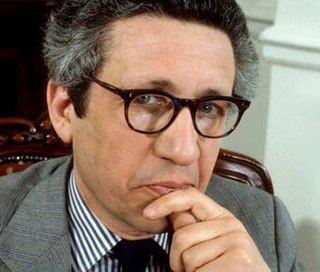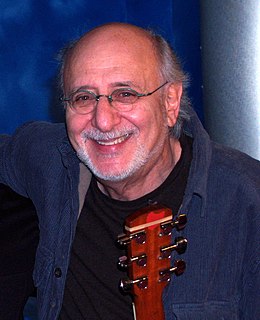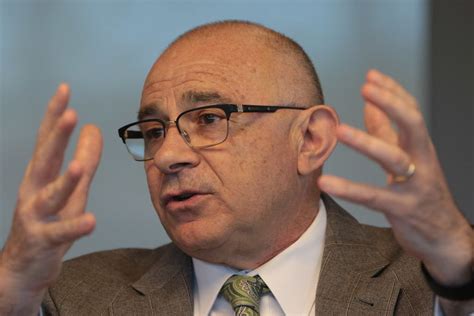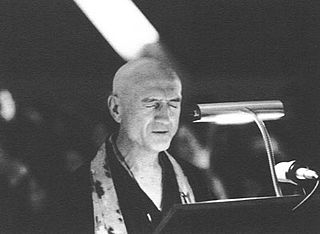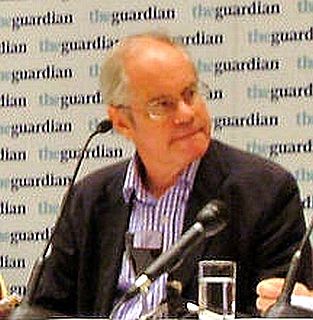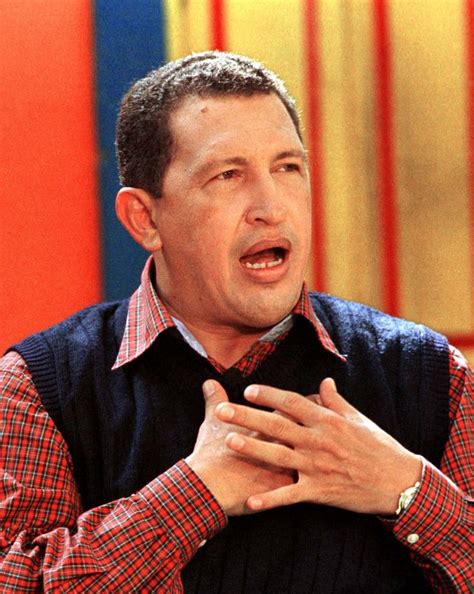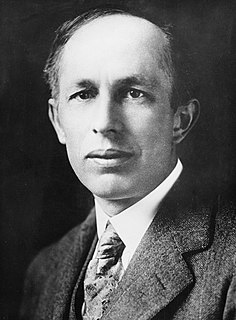Top 1200 Causes Of Poverty Quotes & Sayings - Page 8
Explore popular Causes Of Poverty quotes.
Last updated on December 19, 2024.
The economic benefits of investing in children have been extensively documented. Investing fully in children today will ensure the well-being and productivity of future generations for decades to come. By contrast, the physical, emotional and intellectual impairment that poverty inflicts on children canmean a lifetime of suffering and want - and a legacy of poverty for the next generation.
Anyone who lives with poor health or chronic pain, or who has endured poverty - real poverty - knows what it is to live with lack and a resulting fear so incessant that it becomes thoroughly normalized, invisible in its ubiquity. If you're lucky enough to have that fear begin to ease, it's an odd experience. A stranglehold eases off your entire body, one you never fully realized was there.
You [Jill Stein] also believe in a full employment policy that was the majority Democratic Party policy in 1946. They actually passed a law to that effect. You want to end poverty and when people see how relatively easy it is to end poverty. And one way is to increase the minimum wage: catch up; it's been frozen for so many years.
The curse of poverty has no justification in our age. It is socially as cruel and blind as the practice of cannibalism at the dawn of civilization, when men ate each other because they had not yet learned to take food from the soil or to consume the abundant animal life around them. The time has come for us to civilize ourselves by the total, direct and immediate abolition of poverty.
One would have thought that it was even more necessary to limit population than property; and that the limit should be fixed by calculating the chances of mortality in the children, and of sterility in married persons. The neglect of this subject, which in existing states is so common, is a never-failing cause of poverty among the citizens; and poverty is the parent of revolution and crime.
The first issue that compelled me was a very strange split between India being highly development scientifically (we were the third biggest scientific manpower in the world then) and yet at the same time struggling with amazing poverty. The linear equation that says that modern science equals progress and the reduction of poverty did not apply to India. It wasn't working.
It is easy enough to tell the poor to accept their poverty as Gods will when you yourself have warm clothes and plenty of food and medical care and a roof over your head and no worry about the rent. But if you want them to believe youtry to share some of their poverty and see if you can accept it as Gods will yourself!
I can't help but react to the painful realities of the two-tiered society we live in, where the signs of poverty and inequity are everywhere. Almost twenty five percent of our children live at or below the poverty line. We expect the no-option life cycle of the poor to be interrupted by the weak social safety net and then wonder why building more jails doesn't solve the problems.
One Dilbert Blog reader noted that current research shows that happiness causes success more than success causes happiness. That makes sense to me. There's plenty of research about people having a baseline of happiness that doesn't vary much with circumstances. And given that happy people are typically optimistic, energetic, and fun to work with, I can see how happiness would lead to success.
Supreme Court says pornography is anything without artistic merit that causes sexual thoughts, that's their definition, essentially. No artistic merit, causes sexual thoughts. Hmm... Sounds like... every commercial on television, doesn't it? You know, when I see those two twins on that Doublemint commercial? I'm not thinking of gum. I am thinking of chewing, so maybe that's the connection they're trying to make.
A man who hates the passion cuts off their causes. But a man who remains among their causes experiences even against his will the conflict from the passions. It is not possible to be mentally inclined toward a passion if one does not love its cause. For who, disdaining shame, is given to vainglory? Or who, loving lowliness, is bothered by dishonor? Who, having a broken and humble heart, accepts fleshly sweetness? Or who, believing in Christ, is concerned about temporal things, or argues about them?
With whomsoever or wheresoever may rest the present causes of difficulty that apparently exist towards either the completion of the old engine, or the commencement of the new one, we trust they will not ultimately result in this generation's being acquainted with these inventions through the medium of pen, ink and paper merely; and still more do we hope, that for the honour of our country's reputation in the future pages of history, these causes will not lead to the completion of the undertaking by some other nation or government.
I think one of the biggest mistakes that America has made - and maybe the world because this is, sort of, the core of communism and socialism - is that you can have perfect solutions to social problems like poverty, like crime. You're not going to eliminate all crime. Maybe you'll never eliminate all poverty.
During my eleven years as a New York City public school teacher, I saw firsthand the impact that poverty has on the classroom. In low-income neighborhoods like Sunset Park, where I taught, students as young as five years old enter school affected by the stresses often created by poverty: domestic violence, drug abuse, gang activity.
Illnesses which occur because of physical causes should be treated by doctors with medical remedies; those which are due to spiritual causes disappear through spiritual means. Thus an illness caused by affliction, fear, nervous impressions, will be healed more effectively by spiritual rather than physical treatment. Hence, both kinds of treatment should be followed; they are not contradictory.
The world is fairly studded and strewn with pennies cast broadside by a generous hand. But- and this is the point- who gets excited by a mere penny? But if you cultivate a healthy poverty and simplicity, so that finding a penny will literally make your day, then, since the world is in fact planted in pennies, you have with your poverty bought a lifetime of days.
Labour ministers often look puzzled when reports show that Britain has one of the lowest levels of social mobility in the developed world. They just don't get it. They see poverty, inequality, fairness, as all about income. For the past 12 years, they have relied on tax credits to solve this. But tax credits do not solve poverty: they mask it.
Poverty is not a certain small amount of goods, nor is it just a relation between means and ends; above all it is a relation between people. Poverty is a social status. As such it is the invention of civilization. Socrates made the same point 2,400 years ago: "He is richest who is content with least, for contentment is the wealth of nature.
We think of violence as being conflict and fighting and wars and so forth, but the most ongoing horrific measure of violence is in the horrible poverty of the Third World... and the poverty in the United States as well. We have our own Third World here. And we have to first become aware of that and how to help and solve that.
Women represent 70 percent of the 1.3 billion people in our world who live in absolute poverty. Consequently, as Joan Holmes, president of the Hunger Project, points out, any realistic efforts to change patterns of chronic hunger and poverty require changing traditions of discrimination against women.
As a reporter, you know the tropes of how stories on poverty work in any country. A reporter will go to an NGO and say, "Tell me about the good work that you're doing and introduce me to the poor people who represent the kind of help you give." It serves to streamline the storytelling, but it gives you a lopsided cosmos in which almost every poor person you read about is involved with a NGO helping him. Our understanding of poverty and how people escape from poverty, in any country, is quite distorted.
It is easy to romanticize poverty, to see poor people as inherently lacking agency and will. It is easy to strip them of human dignity, to reduce them to objects of pity. This has never been clearer than in the view of Africa from the American media, in which we are shown poverty and conflicts without any context.
Those who either from imprudence or want of sagacity avoid doing so, are always overwhelmed with servitude and poverty; for faithful servants are always servants, and honest men are always poor; nor do any ever escape from servitude but the bold and faithless, or from poverty, but the rapacious and fraudulent.
Chile has done a lot to rid itself of poverty, especially extreme poverty, since the return to democracy. But we still have a ways to go toward greater equity. This country does not have a neoliberal economic model anymore. We have put in place a lot of policies that will ensure that economic growth goes hand in hand with social justice.
If the federal constitution is to be construed so far in connection with the state constitutions, as to leave the trial by jury in civil causes, for instance, secured; on the same principles it would have left the trial by jury in criminal causes, the benefits of the writ of habeas corpus, etc. secured; they all stand on the same footing; they are the common rights of Americans, and have been recognized by the state constitutions.
He [Hugo Chavez] put poverty at the heart of political debate. Rightly so, given the country's immense inequality and poverty. He invested heavily in social programs such as literacy, health clinics, and education. He promoted Venezuela's indigenous culture and urged compatriots to take pride in its pre-Columbian history. He called time on the US treating Latin America as its backyard.
Too often the media assumes that "poverty" is an African American or a Latino issue. Of course, that's nonsense. While a higher percentage of the African American and Latino population does live in poverty as compared to the white population, when overall numbers are looked at, it is clear that people of all races, ethnicities, and colors, are represented amongst America's poor.
Polak, a psychiatrist, has applied a behavioral and anthropological approach to alleviating poverty, developed by studying people in their natural surroundings. He argues that there are three mythic solutions to poverty eradication: donations, national economic growth, and big businesses. Instead, he advocates helping the poor earn money through their own efforts of developing low-cost tools that are effective and profitable.
Even though it is the case that poverty is linked to AIDS, in the sense that Africa is poor and they have a lot of AIDS, it's not necessarily the case that improving poverty - at least in the short run, that improving exports and improving development - it's not necessarily the case that that's going to lead to a decline in HIV prevalence.
Lent is a fitting time for self-denial; we would do well to ask ourselves what we can give up in order to help and enrich others by our own poverty. Let us not forget that real poverty hurts: no self-denial is real without this dimension of penance. I distrust a charity that costs nothing and does not hurt.
The argument from design is ultimately an appeal to miraculous causes, i.e., causes that do not, and cannot, occur in the natural course of events. This is why an explanation via design is not a legitimate alternative to scientific and other naturalistic modes of explanation. To refer to a miraculous cause is to refer to something that is inherently unknowable, and this sanctuary of ignorance explains nothing at all. However much it may soothe the imagination of the ignorant, it does nothing to satisfy the understanding of a rational person.
Do you know what the largest single cause of death in South Africa is? The largest single cause of death is what in the medical statistics is called external causes and that is violence in the society. For instance I've seen figures that say that if you take the male age cohort from16 to 45 years, 54% of the people who die in that age cohort die from external causes.
The notion about education has changed and that now it’s sort of much more aligned with, “Well, schools can’t combat poverty. We can’t possibly expect schools to do the work to overcome poverty.” I think that notion which has changed over the last few decades is part, not all, but part of what is maybe leading to people feeling less of a sense of possibility.
Those who automatically say that the social pathology of the ghetto is due to poverty discrimination and the like cannot explain why such pathology was far less prevalent in the 1950s, when poverty and discrimination were worse. But there were not nearly as many grievance mongers and race hustlers then.
I was a TV producer at a noncommercial station, and we were producing some good documentaries - on Head Start, on poverty. But I was struck by the children, and the damage that poverty was doing to them. I didn't think filming them was helping much, so I wondered how we could use TV for them, to teach them.
Plenty is the original cause of many of our needs; and even the poverty, which is so frequent and distressful in civilized nations, proceeds often from that change of manners which opulence has produced. Nature makes us poor only when we want necessaries; but custom gives the name of poverty to the want of superfluities.
Poor people are bonsai people. There is nothing wrong in their seeds. Simply, society never gave them the base to grow on. All it needs to get the poor people out of poverty for us to create an enabling environment for them. Once the poor can unleash their energy and creativity, poverty will disappear very quickly.
You make men love their government and their country by giving them the kind of government and the kind of country that inspire respect and love; a country that is free and unafraid, that lets the discontented talk in order to learn the causes of their discontent and end those causes, that refuses to impel men to spy on their neighbors, that protects its citizens vigorously from harmful acts while it leaves the remedies for objectionable ideas to counter-argument and time.
My vision for the future? Two things: to make credit a human right so that each individual human being will have the opportunity to take loans and implement his or her ideas so that self-exploration becomes possible. And second: that it will lead to a world where nobody has to suffer from poverty - a world completely free from poverty.
The service of India means the service of those teeming millions steeped in poverty, ignorance and disease. To see that in my lifetime we can soften these harsh edges of extreme poverty and unleash a new economic and social revolution which will bring out the latent creativity and entrepreneurial spirit of our people, I think that's what I feel, I think.
By the Reagan era, the 'culture of poverty' had become a cornerstone of conservative ideology: poverty was caused not by low wages or a lack of jobs but by bad attitudes and faulty lifestyles. The poor were dissolute, promiscuous, prone to addiction and crime, unable to 'defer gratification' or possibly even set an alarm clock. The last thing they could be trusted with was money.
The form of law which I propose would be as follows: In a state which is desirous of being saved from the greatest of all plagues-not faction, but rather distraction-there should exist among the citizens neither extreme poverty nor, again, excessive wealth, for both are productive of great evil . . . Now the legislator should determine what is to be the limit of poverty or of wealth.
My father was a basketball player, so I loved basketball because he did. It was a direct transference. But, more than that, basketball, in the United States at least, plays the same function that soccer does everyone else in the world. It's the sport of poverty. It's the sport born of poverty. It's the cheapest sport.
This is the thing to bomb. This is the beginning—from "I" to "we". If you who own the things people must have could understand this, you might preserve yourself. If you could separate causes from results, if you could know that Paine, Marx, Jefferson, Lenin were results, not causes, you might survive. But that you cannot know. For the quality of owning freezes you forever into "I", and cuts you off forever from the "we".
Now, you might say – “But why should we pay people for doing what they’re supposed to do?” It’s a fair question – but think of it this way: Every other anti-poverty program that’s been tried has failed to get the national poverty rate below 11 percent... Why shouldn’t we experiment with a program built around the one strategy that has proven time and again to work wonders – capitalism?
God has no needs. Human love, as Plato teaches us, is the child of Poverty – of want or lack; it is caused by a real or supposed goal in its beloved which the lover needs and desires. But God's love, far from being caused by goodness in the object, causes all the goodness which the object has, loving it first into existence, and then into real, though derivative, lovability. God is Goodness. He can give good, but cannot need or get it. In that sense , His love is, as it were, bottomlessly selfless by very definition; it has everything to give, and nothing to receive.







